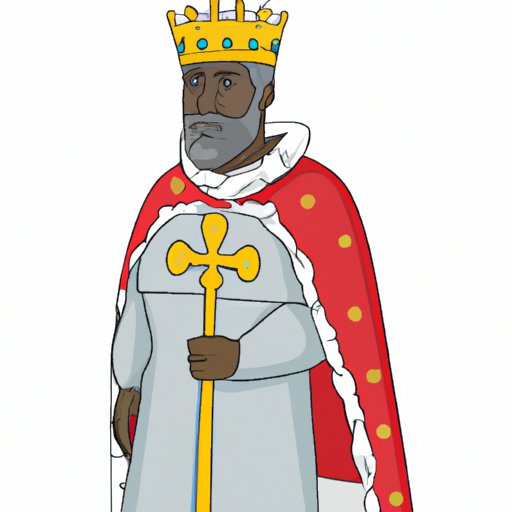Introduction
Charlemagne, also known as Charles the Great, was one of the most influential leaders in European history. He was the King of the Franks from 768-814 CE, and is credited with helping to unify much of Western Europe during his reign. He was also instrumental in the spread of Christianity, and is remembered for his military successes and administrative reforms. But was Charlemagne a good leader? In this article, we will explore Charlemagne’s life, accomplishments, and legacy in order to assess whether or not he was a good leader.
Examining Charlemagne’s Leadership Style
Charlemagne was an ambitious and determined ruler who sought to expand his kingdom and promote the spread of Christianity. He implemented a number of administrative reforms, such as creating a single currency and standardizing weights and measures. He also established a legal code that was based on Roman law, which allowed him to better govern his kingdom. Charlemagne was also dedicated to spreading Christianity throughout his empire. He encouraged conversion and made it easier for people to become Christian by providing incentives for those who did so. He also built churches and monasteries and provided financial support for them.
Charlemagne was also a skilled diplomat. He was able to successfully negotiate with other rulers in order to expand his kingdom, and he was also able to maintain friendly relations with the Byzantine Empire. He also forged alliances with other rulers and used marriage as a way to strengthen his political ties. Charlemagne was also a skilled military leader, and he was able to use his army to successfully defend his kingdom and expand its borders.
Looking at Charlemagne’s Legacy in History
Charlemagne is remembered in history as an effective ruler and a great Christian leader. He was able to unify much of Western Europe under his rule, and he established the Carolingian Empire, which lasted until the 10th century. He was also responsible for promoting the spread of Christianity, which had a lasting impact on Europe. Charlemagne is also remembered for his administrative reforms, which laid the foundation for the development of the feudal system.
Evaluating Charlemagne’s Impact on Europe
Charlemagne played an important role in unifying the Frankish Empire and establishing the Carolingian Empire. He was also instrumental in promoting the spread of Christianity, which had a lasting impact on Europe. Charlemagne’s administrative reforms also laid the groundwork for the development of the feudal system, which would later become the dominant form of government in Europe.
Analyzing Charlemagne’s Role in the Development of Feudalism
Charlemagne was a major proponent of the feudal system, which he used to reward loyal vassals and reward them for their service. He also implemented a series of laws that regulated the relationship between lords and vassals, which helped to establish the feudal system. Charlemagne also introduced the concept of manorialism, which allowed lords to control land and resources in exchange for providing military protection and services to the king.
Assessing Charlemagne’s Military Successes and Failures
Charlemagne was a skilled military leader, and he was able to use his army to successfully defend his kingdom and expand its borders. He was also successful in a number of military campaigns, including the conquest of the Lombards and the Saxons. However, Charlemagne was also defeated in a few battles, such as the Battle of Roncevaux Pass. Despite these defeats, Charlemagne was generally successful in maintaining the security of his kingdom.
Conclusion
Charlemagne was a skilled and ambitious leader who was able to unify much of Western Europe during his reign. He was also instrumental in spreading Christianity and establishing the Carolingian Empire. Charlemagne was also responsible for introducing the feudal system and laying the foundation for the development of manorialism. Although he suffered some defeats in battle, Charlemagne was generally successful in defending his kingdom and expanding its borders. Overall, Charlemagne was a good leader who left a lasting legacy in European history.
(Note: Is this article not meeting your expectations? Do you have knowledge or insights to share? Unlock new opportunities and expand your reach by joining our authors team. Click Registration to join us and share your expertise with our readers.)
